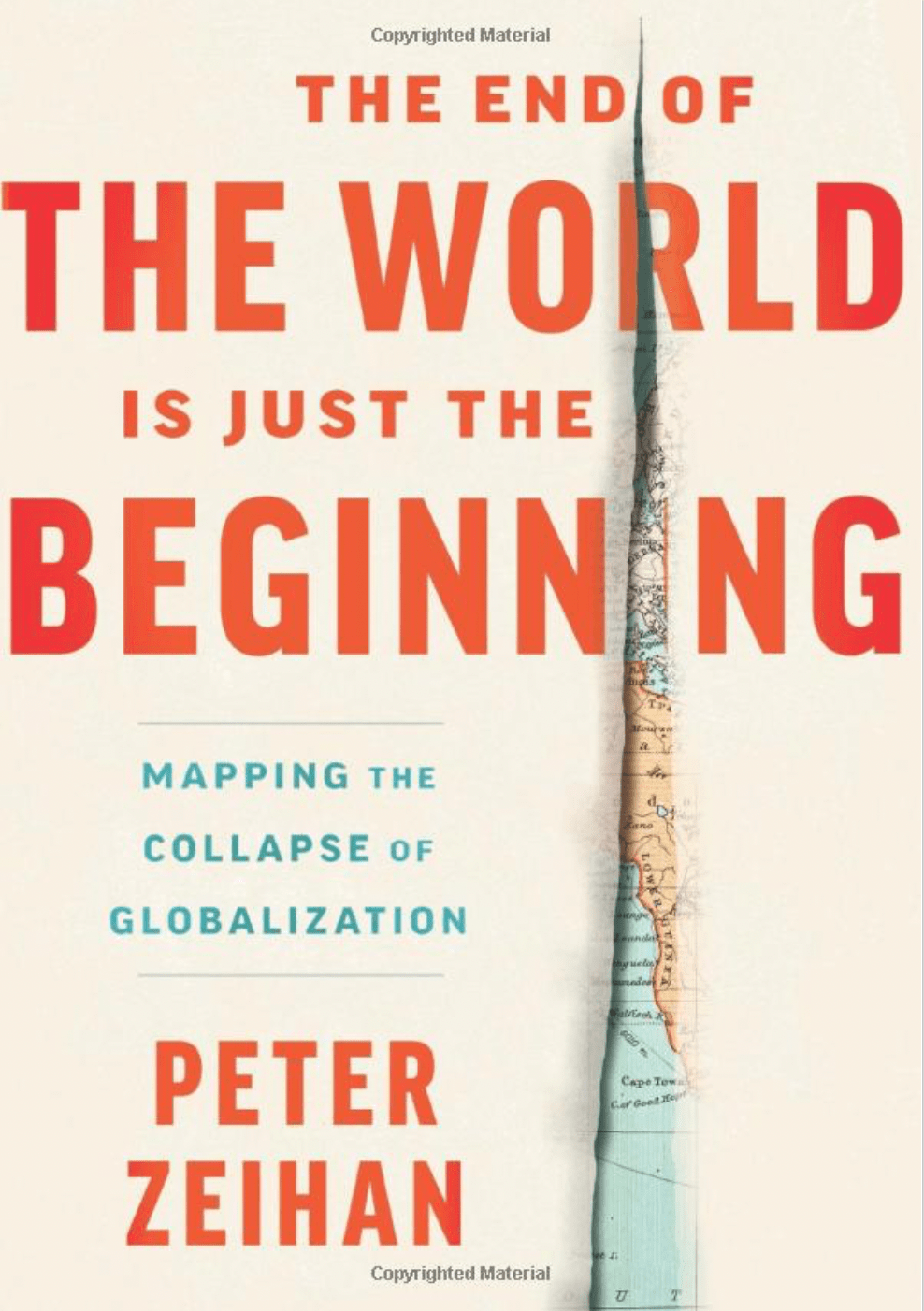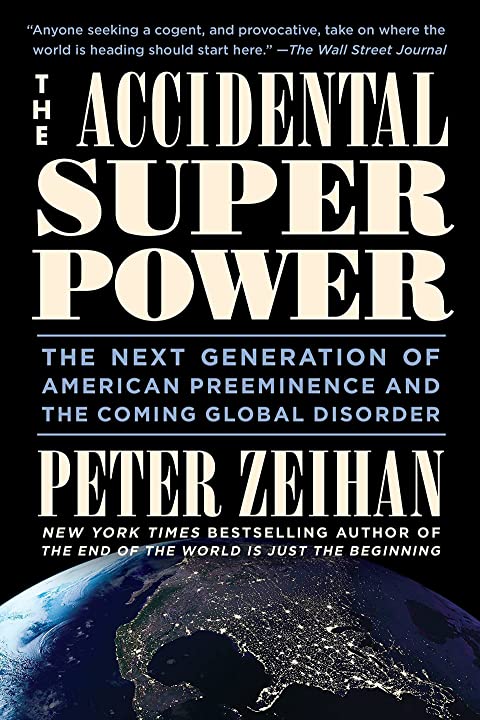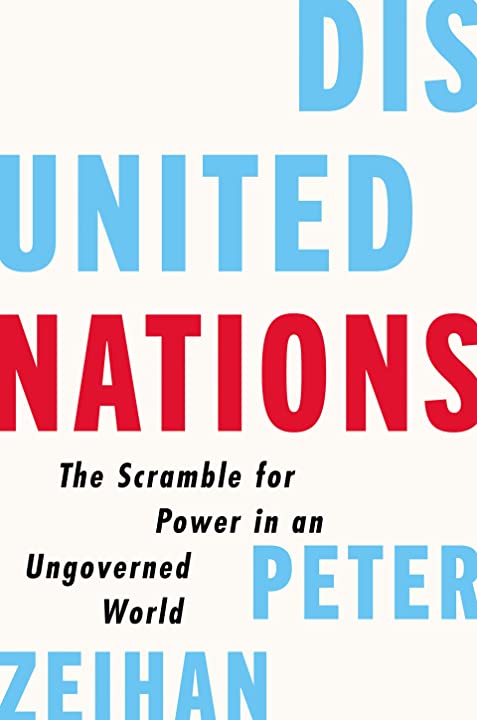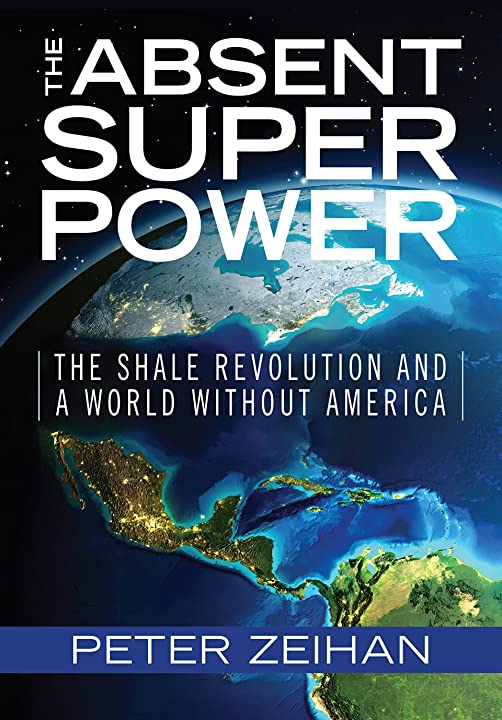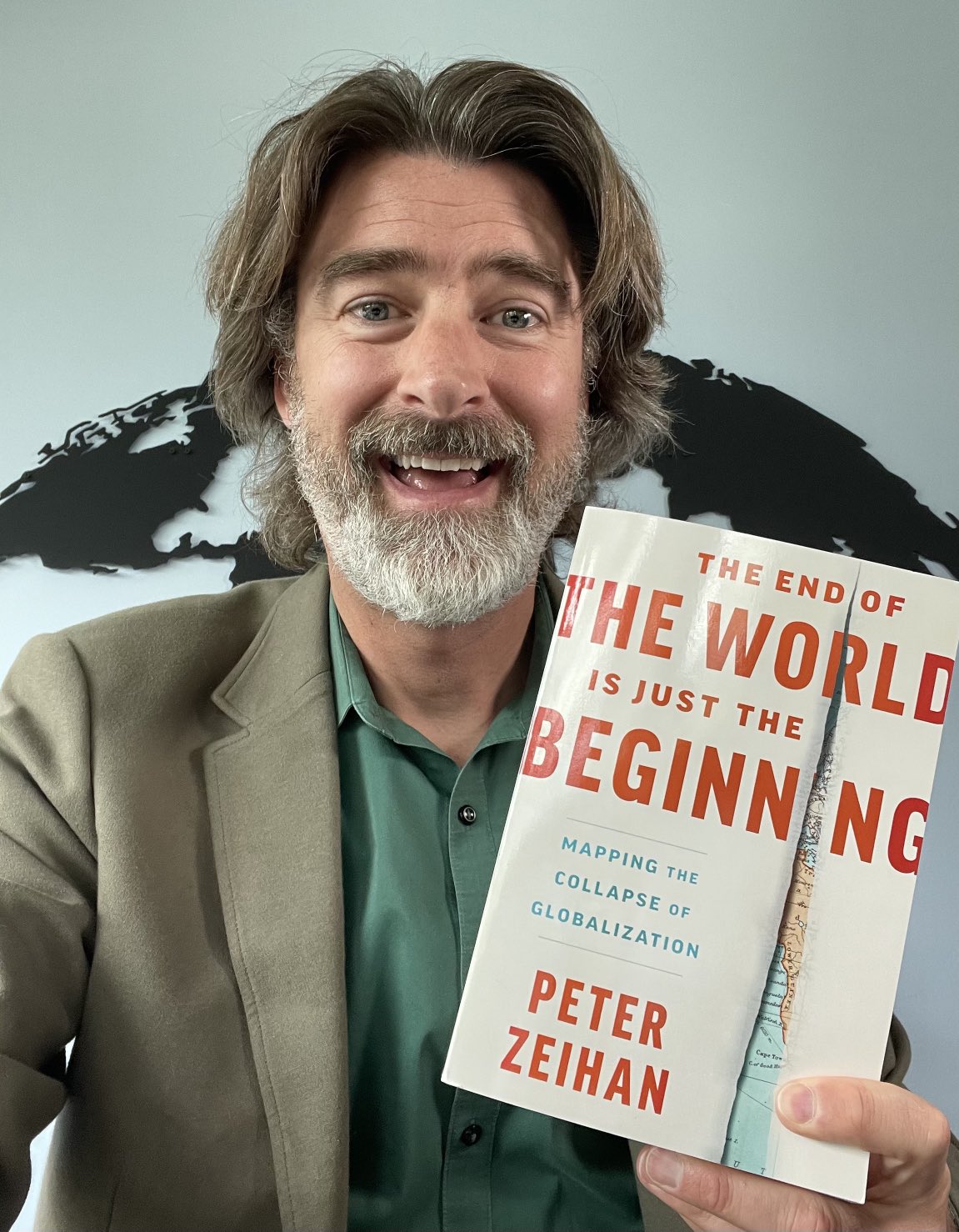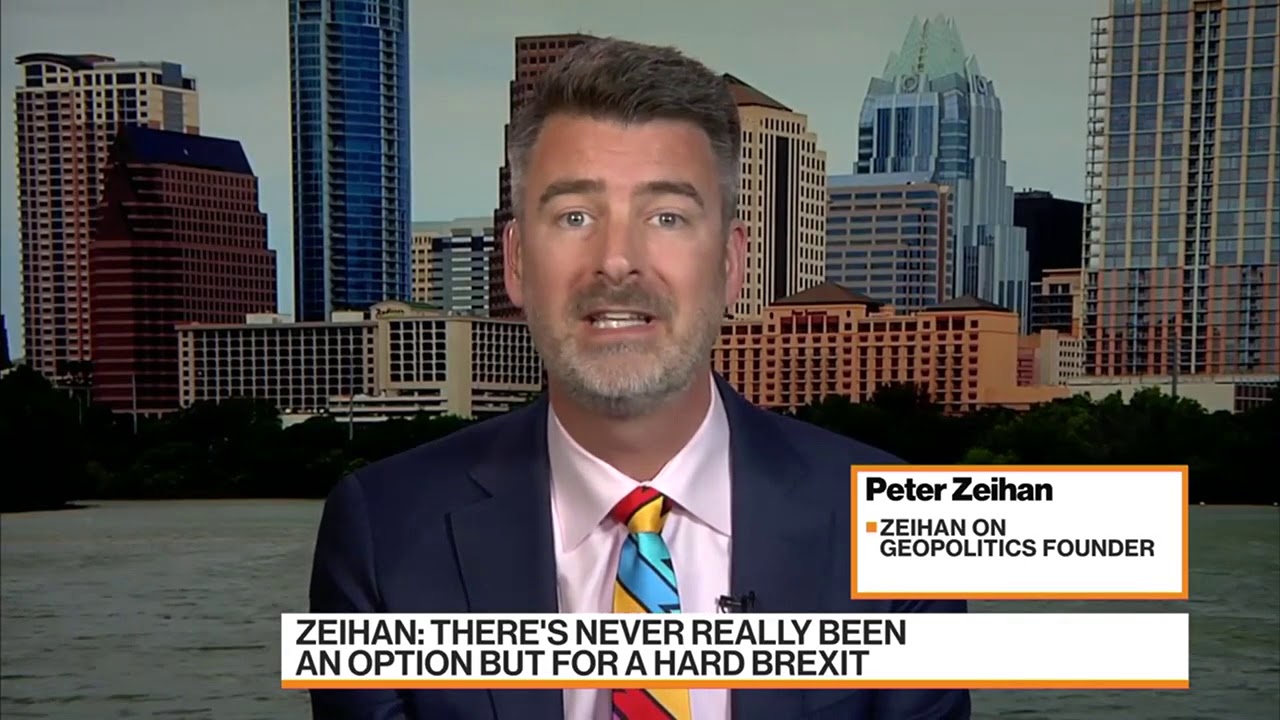Biography
Peter is a New York Times bestselling author whose first three books—The Accidental Superpower, The Absent Superpower, and Disunited Nations—have been recommended by Mitt Romney, Fareed Zakaria, and Ian Bremmer. He is also a highly sought-after public speaker. With a keen eye toward what will drive tomorrow’s headlines, his irreverent approach transforms normally dense and heavy topics into accessible, relevant takeaways for audiences of all types.
Peter’s fourth book, The End of the World is Just the Beginning: Mapping the Collapse of Globalization, was published in June 2022 and was a New York Times bestseller.
With a lively, non-partisan approach backed by a decade in private intelligence, Peter customizes every keynote to show each audience exactly why their world is changing fast—and how they can get ahead of it. He illustrates how geography redefines global power, how demographics doom the current trade order, and how America’s energy revolution has fundamentally shifted global realities from Russia to Iran to China.
Videos
Keynote – Peter Zeihan - 2022
Peter Zeihan: DEPOPULATION and the End of the World Order
Peter Zeihan- Bloomberg- Britain leaving the EU
Speaker Interview: Peter Zeihan
What's Driving Towards Protectionist Tariffs? (w/ Peter Zeihan) | Expert View | Real Vision™
Speech TopicsExpand each topic to learn more
It has been a long time coming, but we have arrived at the end of the world. Decades of demographic degradation are now manifesting as chronic shortages of labor and capital. Globalization isn’t simply past its peak, it is disintegrating with accelerating speed. A fleet of ends beckon: global energy, global agriculture, global manufacturing, integrated Europe. China. But an end to this world does not mean an end to the world, simply that the rules of the game and the lists of winners and losers are changing. As the environment rearranges it’ll be a (very) bumpy ride, but we stand at the launch of the greatest period of growth in North American history.
For the past decade, Peter has been discussing the nature, strength and weaknesses of the international system. How post-World War II institutions, geography and demographics have made our world our world…and how it was never going to last. Well, we are now at that world’s end. Any number of factors – the Ukraine War, the fall of China and Germany, energy breakdowns, supply chain collapses, workforce shrivelings, financial contractions, and so on – would independently be sufficient to break the international economy. And they are all happening at once. We were always going to get here, and here we are. So let’s discuss what happens next.
For the past three decades our world has known ever-rising volumes of money. Whether from Wall Street, the Federal Reserve, Europe or East Asia, this rising tide of capital at ever-cheaper rates has defined the post-Cold War era. It’s ending. Now. For reasons geopolitical and demographic, the globalization of finance is in its final months just as the overall inflows are dissolving for reasons demographic. This isn’t momentary. We will not return the capital structure of the 2000s and 2010s within our lifetimes. The questions now become how deep the crash will be, which sectors will suffer the most, and what islands will be able to weather the coming financial storm?
The concept of countries being able to buy and sell their wares openly on the international marketplace is inviolable. The freedom to sail one’s products around the world is a given. Everything from the transfer of money to the accessibility of energy is sacrosanct. Yet all this and more is artificial: an unintended — if happy — side effect of the American-led global Order. With that Order in its final days, all countries and all industries must learn to operate in a world as unstructured as it is dangerous. Join us as Peter Zeihan lays out how we got to where we are, and what the future holds for sectors as diverse as energy, agriculture, finance, manufacturing and transport.
Three pillars support modern China’s success: global trade, internal political unity, and easy money. With those three pillars, China has managed to shake 2000 years of war and occupation and remake itself as one of the world’s most powerful countries. Yet none of these three pillars can stand without American assistance, and that cooperation is ending. China’s “inevitable” rise isn’t simply over, it is about to go into screeching, unrelenting, dismembering reverse. But that’s hardly the end of history. When a country falls — particularly the world’s top manufacturing power — the ripples affect countries and industries near and far. Learn who benefits and who loses in a world without China.
The Mideast wars have left the United States exhausted and leery. Immigration has become a four-letter word. Shale has severed most of the ties that bind. In sum, the United States has lost interest in the wider world and so is already hip-deep in a decade-long retrenchment. That will change not just the world, but America itself. Such evolutions will make next phase of American engagement not just more thoughtful and surgical, but also more lucrative.
The world of manufacturing is an endlessly specialized venture, with most manufacturers sourcing components from scores of facilities across a dozen or more countries. But what if the ability to sail components from site to site became compromised? What if capital availability proves insufficient to update industrial bases as technology evolves? What if intermediate and end markets become less desirable – or less accessible? All that and more is about to happen, which signals the end of manufacturing as we know it. The successful manufacturers of the future will be those who can command access to raw materials, capital, labor and markets – all in the same location.
By nearly any definition Mexico should be a failed state, yet because of its location adjacent to the global superpower it instead will be one of the world’s most successful countries. Within the story of Mexico lies the greatest opportunities — and gravest threats — of our time.
The growth of the Chinese economy has been exceptional. But as much as we all “know” that China is the country of the future, in reality the Chinese system is already breaking apart. Chinese “success” is based upon a financial structure that is cracking, a demographic moment that has nearly ended, and an international environment over which it has no influence. What follows will not end Chinese participation in the global system, but it will certainly end Beijing’s.
For decades the Middle East has been trapped in a simple, irresistible tension: the world needs the region’s oil, so the global superpower keeps the region locked in place. Within a very few short years that lock will be removed, and the region’s politics will unravel explosively. What comes next will challenge every country in the region — many to the breaking point.
Conflicts Russian, Middle Eastern and Asian are about to trigger the greatest energy crisis in history. Dozens of countries are slipping into deflationary spirals from which there is little hope of escape. And America’s swerving into demagogic populism will unhinge its entire alliance network. The world as we know it is in its final days. Find out how and why it all came to be, how and why it is all falling apart. But most of all find out how the world’s end heralds the greatest expansion in American power and security in the history of the Republic.
The global energy sector is as complicated and opaque as it is omnipresent and essential, and it has adapted to not simply the changes in the global economic system, but the global political system. Countries that were weak to nonexistent in ages past now are major players in global energy markets, both as producers and consumers. The system that has allowed this evolution now is under fire, and soon the stability that has enabled the energy sector to create its global webwork will end. What will follow will be a world both more chaotic and poorer, one in which the process of finding, producing, transporting and refining energy will simply be beyond the military and financial capacity of most players. Only the largest, smartest and richest entities will be able to maintain – much less expand – their networks. Far from its final days, the era of the supermajor has not yet begun.
Americans think of themselves as set apart from the rest of the world, and to a certain degree they are correct. But it is not that Americans are ‘better’ or ‘more free’ that makes them different, instead that they enjoy supreme geographic positioning and favorable demography — something that is not currently enjoyed by any other major power. Played as little as twenty years forward, this will result in an American-dominated international system with all of the economic and strategic benefits that such implies. But it is a very different world from the one we now know.
The entire European experiment occurred within the Cold War framework that was both artificial and imposed from outside. That framework is dissolving and anything that used it as a foundation — up to and including the euro — is now dissolving with it. Zeihan will lay out why Europe’s strengths — not its debts — have made the euro’s fall inevitable, as well as what life after the common currency will look like not just in Europe, but around the world. The picture is not as dark as you might think.
As the global system evolves no country is better positioned than Canada. Very soon Canada’s choices will be about how to take advantage of opportunities, rather than how to avoid complications. But in this very silver lining is a very dark cloud. The same evolutions that will allow Canada unprecedented opportunities for wealth and respect also hold the possibility of damaging the Canadian state. This time the dangers do not originate from the United States, but from within Canada itself. And they could very well prove mortal.
Available upon request
Testimonials
Blog Posts

Financial Planning in 2026 Requires a Clear Strategy
Have you noticed that the internet has never given more financial planning advice than it does right now? That's actually the problem. Your feed has become a 24/7 trading floor of hot takes. "Buy this."...
Read More
Crisis Leadership Lessons from September 11 Reveal Everyday Resilience
What if the most powerful crisis leadership lesson from September 11 isn't about the decisions made in underground bunkers, but about the farmers, truckers, teachers, and everyday workers who make heroic responses possible? After sharing...
Read More
Best Artificial Intelligence Speakers for Cybersecurity Conferences (2026 Guide)
Quick Links Artificial Intelligence Speakers Healthcare Keynote Speakers Top Technology Speakers Innovation Speakers Leadership Speakers Future of Work Speakers Get Proposal (availability & fees) If you’re searching for the Best Artificial Intelligence Speakers for Cybersecurity...
Read More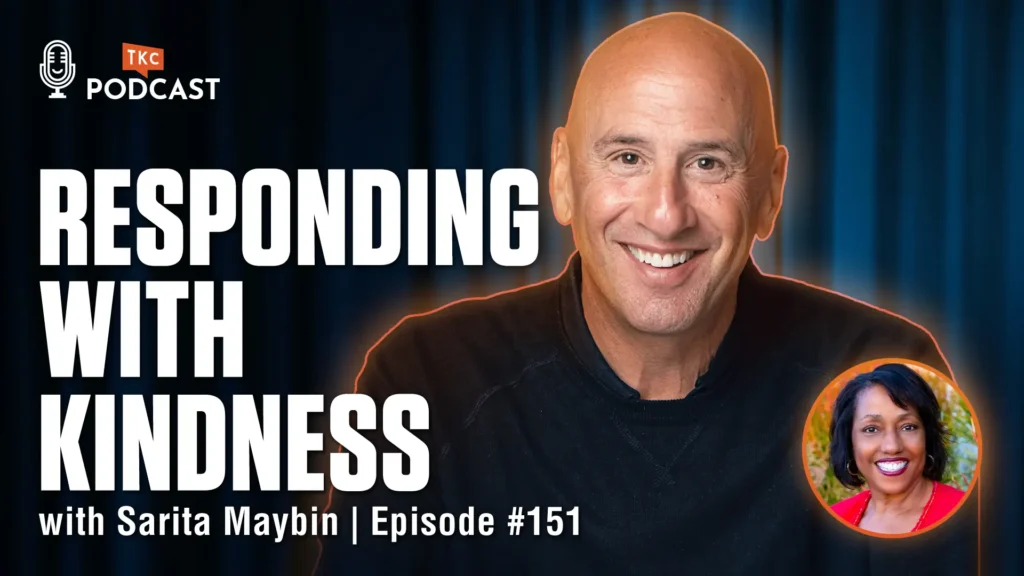
Communication Strategies from Sarita Maybin that Transform Workplace Conflict Into Collaboration
Why Your Team's Real Problem Isn't Strategy—It's Communication When was the last time a workplace conversation went sideways, not because of what was said, but how it was delivered? Most organizations pour resources into strategic...
Read More
The 2026 Keynote Speaker Lineup That Creates Real Momentum
If you're looking for a sign to power start your 2026, here it is: this is the year you stop negotiating with your potential. January arrives packed with goals, spreadsheets, and ambitious plans. However, goals...
Read More
Best Artificial Intelligence Speakers for Technology (SaaS) Conferences (2026 Guide)
Quick Links Artificial Intelligence Speakers Healthcare Keynote Speakers Top Technology Speakers Innovation Speakers Leadership Speakers Future of Work Speakers Get Proposal (availability & fees) This guide features the Best Artificial Intelligence Speakers for Technology (SaaS)...
Read MoreRelated Futurist Speakers
Get in TouchContact US
Fill out the form so we can best understand your needs.
A representative from The Keynote Curators will reach out to you.

